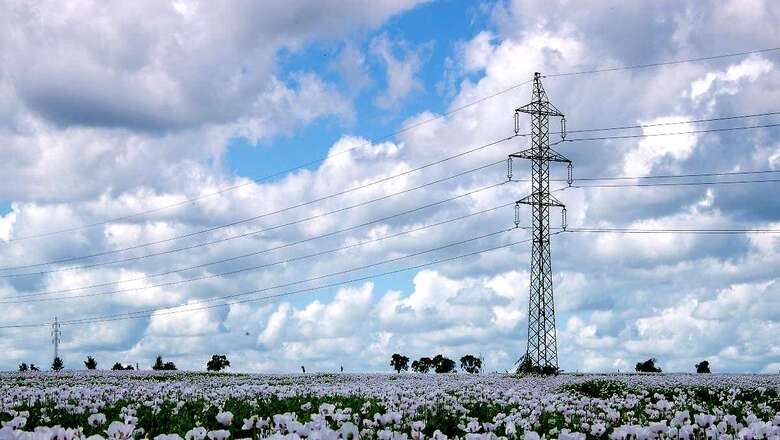
views
The current Manipur crisis has multiple dimensions, and the drug angle lies ominously intertwined with other vexed issues. The triangular clash between the three major ethnic groups, comprising Nagas, Kukis and Meiteis, is ignited by a volatile mix of Chinese-funded narco industry operating across the border in Myanmar, the N. Biren Singh government’s war on drugs, the clearing of reserved forest areas in the hills for poppy cultivation, removing illegal occupants of forest lands, and Rohingyas indulging in drug trafficking.
The state government has been pursuing an active “war” against the illegal drug trade by regularly arresting several key players. Even village chiefs, under whose jurisdiction poppy is cultivated on a large scale in the hills, have been arrested. In July 2022, Congress MLA Kangujam Ranjit Singh raised the poppy cultivation issue in the Manipur legislative assembly and demanded the enactment of a stringent law that would award capital punishment or life imprisonment to people arrested in connection with the illegal drug trade. While earlier, the Golden Triangle countries of Laos, Thailand, and Myanmar were identified as source countries, the present aggravated situation is that the drugs are manufactured in Manipur itself, he stated.
The current wave of tensions between the majority Meitei community and the Kukis lies in the actions taken since 2017-18 against illegal poppy cultivation in the hill districts. Since 2017-18, over 18,664 acres of poppy cultivation have been destroyed by the authorities, mostly in hill districts, compared to just 1,889 acres of poppy destroyed between 2013 and 2016. Manipur shares a porous border of 390 kilometres with Myanmar. As early as 2007, a report published by the United States Department of Justice (DOJ) brought to light the Chinese activity in Northeast India and Myanmar. Titled ‘The Chinese Connection: Cross-border Drug Trafficking between Myanmar and China’, the report brought to light data about drug traffickers of Chinese descent operating in the Golden Triangle and surrounding countries and that almost all major traffickers and distributors of illicit drugs are Chinese. It is not only drugs but also small arms and light weapons, and human trafficking that is causing turmoil in the region.
Present-day seizures of drugs include heroin, brown sugar, prescription painkillers, cough syrups, and the “World is Yours” pills. In May 2023, one kilogram of drugs was seized in Manipur district. Approximately, 370 arrests of cadres of various underground groups have been accomplished in the last two years. In April 2023, the Manipur Police seized 3.51 kg of heroin powder worth over Rs 30 crore in the international market. Imphal Customs seized narcotic tablets and opium worth more than Rs 2.7 crore, on February 1, 2023. On May 8, 2023, when Imphal was facing curfew, the Narcotics and Affairs of Border (NAB) — a specialised unit of the state police — recovered 77 gunny bags, suspected to contain poppy seeds and 120-kyat, Myanmar’s currency.
Large quantities of drugs — heroin and methamphetamine tablets — worth Rs 500 crore in the international market, were seized from a house at Sunrise Ground in Moreh town of Manipur in December 2021. The People’s Liberation Army of Manipur (PLA) saw a significant surrender and arrests of over 100 cadres, the largest amongst all the terrorist organisations.
The lure of quick and easy money has lured Manipuri youth, including girls, not only in Manipur but also in Mizoram and other Northeastern states to get involved with the drug smuggling rackets and the cross-border nexus. The smuggling of synthetic drugs has become a major illicit cross-border trade. The Kuki tribe that dominates the hill tracts are heavily into drug trafficking as well as poppy cultivation. Kukis of Myanmar are also making an influx into Manipur, and the local Kuki population are hand-in-glove in this activity. Even underground tunnels have been made to facilitate the movement of Kukis from Myanmar into Manipur. The local Kukis and the infiltrating Kukis have made poppy cultivation a lucrative enterprise. Massive deforestation has occurred for poppy cultivation. The trade has become too entrenched and has established regional, national, and international links.
Rohingya refugees from Myanmar infiltrating into India via Manipur, and into Bangladesh, are adding to the complexity of the problem. These refugees are bereft of any livelihood, education, skills, employment, or any means of basic sustenance. Drug trafficking is the sole avenue for survival for thousands of refugees languishing in camps in Bangladesh. India also has a grave problem as these Rohingyas have spread across the country, many have managed to acquire fake identity documents and are masquerading as Indian citizens. But their prime occupation is drug trafficking and this is proving to be an intractable problem. The Kukis have strategically roped them into the narcotics trade and the hills and forests provide an effective cover for the flourishing trade. Deforestation has taken a heavy toll on the fragile geography, and poppy cultivation is rampant. The enforcement agencies and the para-military forces are not conversant with the unique complexities of the NDPS Act 1985, hence there is no effective hot pursuit of cases nor any successful prosecution. Political interference and corruption ensure a complete breakdown of cases, either at the investigation stage or at the stage of legal proceedings. It was in this background that the chief minister initiated the ‘War on Drugs 2.0’, resulting in destroying 380 acres of poppy cultivation, seizing of drugs worth over Rs 182 crore in the international market, and the arrest of over 140 drug traffickers. Obviously, this has not been acceptable to the Kukis and their minions. Quick retaliation came when the high court ordered to grant Scheduled Tribe (ST) status to the Meitei tribe. This was resented by the other tribes like the Kukis and Nagas.
All hell broke loose on May 3, 2023, when a major conflagration was started, killing, burning, and destroying by the Kukis. The Intelligence community functioning there were caught unaware, which affected the readiness of the Police and para-military forces to tackle the violence unleashed.
It is the narcotics rage that is burning the hills and a flourishing trade that has been providing a comfortable monetary cushion to a wide cross-section of traffickers, peddlers, refugees, politicians, and bureaucrats, is getting threatened. It is all about drugs and drug money. The hidden agenda is to derail the ‘War on Drugs 2.0’, but the grievance touted is about the grant of ST status to the Meitei tribe.
The present chief minister has taken the bull by the horns and needs the full-fledged support of every agency, institution, and right-thinking person in this war against drugs, which if not pursued, can become hotter than the present fires raging across the hills. Shiploads of drugs are coming to the Western coast. Traffickers there would be watching with keen interest whether the ‘War on Drugs 2.0’ will peter out, be extinguished or be snuffed out. After all, the elections of 2024 are also perilously too close.
The author is IRS (Rtd), Ph.D. (Narcotics), Former Director General, National Academy of Customs, Indirect Taxes & Narcotics (NACIN). Views expressed are personal.

















Comments
0 comment